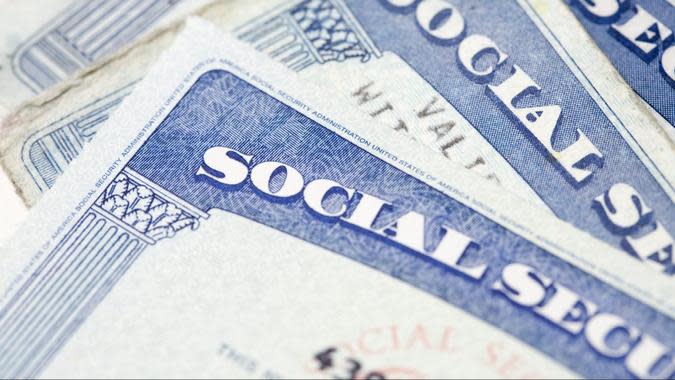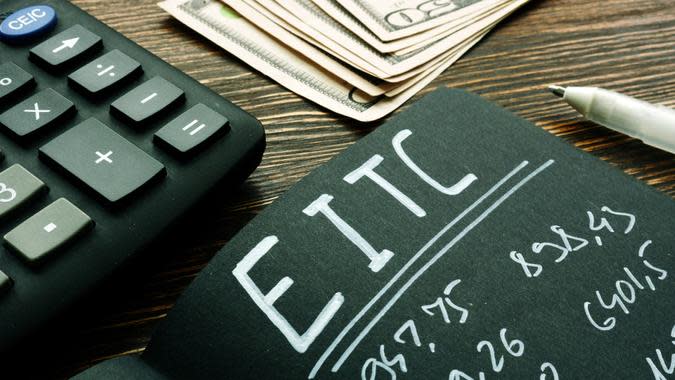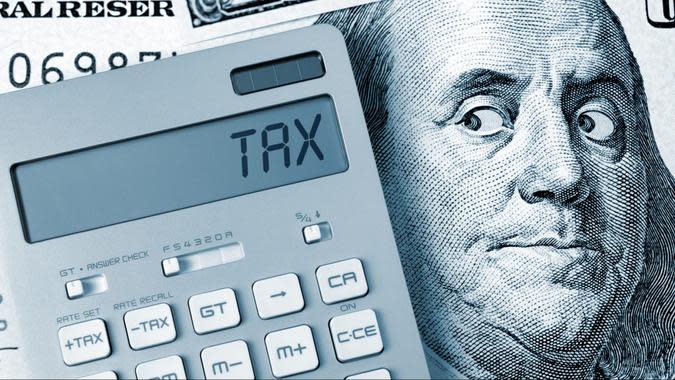10 things you didn't know are tax deductions
It’s only the beginning of the year, but it’s not too early to start thinking about filing your tax return. By the end of January, you should receive your W-2 and 1099 forms from employers and other institutions showing the amount of income you earned in the previous year. To help reduce the amount of income you have to pay tax on, you can claim either the standard deduction, which is allowable for all taxpayers, or itemized deductions, which can make sense if they exceed your standard deduction.
The Future of Finances: Gen Z & How They Relate to Money
Student Loan Forgiveness: Will You Qualify for $0 Payments Under Biden’s New Plan?
More Tips: 3 Ways Smart People Save Money When Filing Their Taxes
However, there are also a number of deductions that come in the form of tax credits or direct reductions of your income. Here are a few that you may or may not be familiar with that you may be able to use to reduce the amount of tax you owe the IRS this year.
K-12 Educational Materials Paid for by Teachers
Teachers have long been lauded for working long hours with low pay, but there is at least a tiny bit of relief that some of them can claim at tax time. Recognizing that many teachers dip into their own pockets to help pay for educational supplies for their students, the IRS allows teachers to deduct up to $250 per year for such costs. Take Our Poll: How Do You Think the Economy Will Perform in 2023?
Post-Graduate Educational Expenses
While some college expenses are tax-deductible, many taxpayers assume that once they graduate, such deductions are no longer allowable. The reality is that the IRS grants a lifelong learning credit amounting to 20% of your educational expenses every year, with a maximum credit of $2,000 annually. The credit does phase out based on MAGI, however, from $59,000 to $69,000 for singles and $118,000 to $138,000 for joint filers.
Employer Social Security Taxes for Self-Employed Workers
One of the major downsides of being self-employed is that you have to pay both the employer and employee portions of Social Security tax. As each half amounts to 7.65%, self-employed workers must contribute the entire 15.3% themselves. However, you are allowed to deduct the 7.65% employer portion of Social Security taxes, which can help reduce the sting a bit.
Earned Income Tax Credit (EITC)
The Earned Income Tax Credit is one of the most well-known tax benefits. It provides a tax credit for taxpayers at qualifying income levels and typically with dependents. However, according to the IRS, about 20% of those who are eligible for the credit every year still don’t claim it. As the credit can be as large as $6,728, this is a benefit most taxpayers should investigate, particularly low- and mid-income earners.
Out-of-Pocket Expenses for Charities
Most taxpayers are aware that they can deduct the value of goods or cash donations they make to charities. However, there are other expenses you can deduct that may not immediately register as charitable donations. For example, if you buy ingredients to make cookies or cakes for a charity bake sale, the IRS allows you to deduct the cost of those ingredients as a charitable donation.
Bad Debts You Can’t Collect
This deduction is a bit more obscure, but it likely happens to taxpayers more often than they would like to admit. Just like a business, if you have a bad debt expense, you can write it off as a deduction. In the case of individual taxpayers, this means that if you lend money to a friend and they don’t pay you back, you can write off the amount of the debt on your taxes. You just have to be in a position to prove to the IRS that the debt is truly uncollectible.
Mortgage Points
One of the many benefits of being a homeowner is that you can deduct a number of home-related expenses. Mortgage interest and property taxes are two of the most well-known, but you can also deduct any points you pay to acquire or refinance a mortgage. Mortgage points are upfront cash payments you make to reduce the interest rate that you’ll pay on your mortgage. As the points are essentially prepaid interest, they are deductible in the same way as regular mortgage interest.
HSA Contributions
Contributions to IRA accounts and 401(k) plans are some of the most popular deductions available to taxpayers. Yet, the relatively overlooked health savings account, or HSA, also qualifies as a tax-advantaged plan, meaning contributions are tax-deductible. When combined with the tax deferral of earnings within an HSA and the tax-free withdrawals allowed for qualified distributions, the HSA should be on the radar of more American taxpayers.
Sales Taxes
State and local income taxes have long been used as a tax deduction, but many Americans are unaware that they can opt instead to take a deduction for sales taxes. While the deduction for state income taxes is usually larger, particularly in states like California with high income tax rates, some states have no income tax at all. In this case, deducting your paid sales taxes may still allow you to get a tax break, as long as your itemized deductions exceed your standard deduction.
Babysitter Expenses
In some limited scenarios, you may be able to deduct the expenses you pay your babysitter. While you can’t get a tax break for going out on a Saturday night and leaving the kids at home, you can write off the cost of a babysitter if you’re looking for work, actually at work or if you’re a full-time student. You’ll likely need to provide lots of documentation about who you are hiring to watch your kids, and that you aren’t simply trying to write off an everyday babysitter to get a tax deduction. More From GOBankingRates8 Aldi Foods That Should Be Budgeted Into Your Weekly Shopping List
Explore GOBankingRates’ 2023 Banking Resource Center
The 10 Best Balance Transfer Credit Cards for 2023
Experts: 4 Safest Places To Keep Your Savings
This article originally appeared on GOBankingRates.com: 10 Things That You Didn’t Know Were Tax Deductions
Source: Read Full Article










